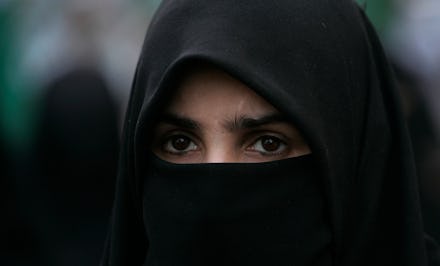Germany might implement a ban on niqabs and burqas

Just one week after several French cities announced a ban on "burkinis," where 10 Muslim women were arrested in response, German officials announced a proposal to ban all face veils.
The niqab, the veiling of the whole body but not the eyes, and the burqa, a full-body veil, might be banned in all public places and institutions in Germany, CNN reported.
This means that schools, universities, registry offices, and government institutions would bar Muslim women who wear the niqab or burqa from entering or force them to disrobe.
Germany will be the third European country to ban face veils in public, after France and Belgium. In 2004, France banned the hijab in all public institutions and in 2010, the French Senate banned the burqa in the country.
Germany's Interior Minister Thomas de Maiziere spoke at a press conference sponsored by the Christian Democratic Union and Christian Social Union stating that their reasoning behind the ban is that it "doesn't fit well" with their society.
"It does not fit into our society for us, for our communication, for our cohesion in the society," Maizerie said, according to CNN. "This is why we demand you show your face."
Maiziere also hinted that reasoning behind the ban also includes their concerns for national security.
Never mind that the majority of terrorism attacks in Europe in the past year have been committed by disillusioned troubled men with a severe conflict of identity — not nieces, mothers and daughters.
Berlin's Interior Minister Frank Henkel, however, tried to use a pro-women argument in his endorsement of the niqab and burqa ban.
Henkel said that the niqab and burqa "does not fit in with our understanding of a tolerant, free society. It does not fit in with our view of women."
There's a sense of irony in Henkel's statement. A state institution implementing a law that prohibits women from choosing what they want to wear is the anti-thesis of what a free society should be like for women.